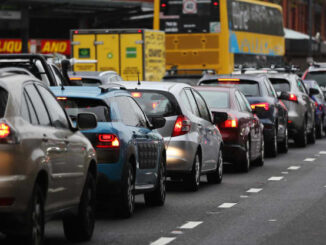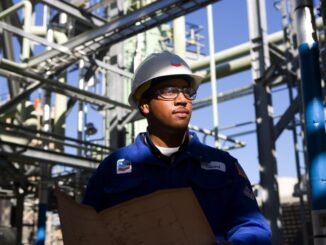
Fires caused by lithium batteries are expected to increase over the coming years as use of the highly flammable product continues to rise, an energy storage expert has warned.
So far this year, lithium batteries have caused at least 98 fires, according to data from the Queensland Fire and Emergency Service (QFES).
Last year, the batteries caused 108 fires.
An investigation is underway after a blaze at one of Queensland’s first large-scale battery storage sites on Tuesday night.
The fire at Bouldercombe, in central Queensland, was contained to a single battery pack but caused hazardous smoke to spread across the area.
Experts say as use of lithium batteries and large-scale storage sites increase, so too will fires caused by the product.
“As we always push technology, there will always be things that come into place that we will need to change,” University of Queensland School of Mechanical and Mining Engineering’s Ruth Knibbe said.
“I believe that this will just be another thing that we will need to change … to make sure that we don’t have more of these incidents occurring, and so it will just be that we’re evolving and we’re learning.”
Battery fires ‘rare’ but increasing
Dr Knibbe said large-scale battery storage site fires like the Bouldercombe incident were rare and more were caused by products like electric vehicles and scooters.
“We’ve seen more fires in those kinds of systems, which are a lot smaller and there’s a lot more operators,” she said.
“But considering the number of batteries that we have around Australia at the moment … it’s still relatively rare.”
Dr Knibbe said lithium batteries were highly flammable, with fires most commonly caused by poor manufacturing, poor control or high temperatures of the battery.
But she expects governments will bring in new rules as more batteries are used.
“We’ll get better regulation on what’s coming in from overseas, we’ll have better regulation in regards to the way that we operate our batteries, and also the way that we cool the batteries as well,” she said.
“So then over time, [the fires] will hopefully decrease.”
Are there other battery equivalents?
Giles Parkinson is the founder of clean energy news and analysis website, Renew Economy.
He said lithium batteries were known fire risks, and there have been problems and warnings around the product, especially those used in smaller household appliances and items.
“Some of them are sort of quite cheap and might not have the full protections,” Mr Parkinson said.
He said some battery makers were starting to promote other types of products that have minimal fire risk.
“Things like sodium ion batteries, and what’s called flow batteries, which is kind of a different sort of chemistry and a different way that you operate a battery,” Mr Parkinson said.
“What they say about those batteries is that there’s almost minimal fires.
“But they’re not as cheap and they’re not as responsive and flexible as lithium ion has proven to be.”
Lithium battery technology new to officers responding to fires
QFES Fitzroy Zone Commander John Platt said lithium technology was relatively new and officers were constantly learning about how best to respond to battery-related fires.
“That sort of training and advice we’re getting from specialists is evolving all the time, and as a fire rescue service we try and stay on top of that as best we can,” Mr Platt said.
Dr Knibbe said this created a lot of issues for firefighters.
“Even if they turn up to a residential property, they don’t know if you’ve got lithium ion batteries [which] can create an additional fuel to the fire,” she said.
Mr Platt said it’s crucial people call triple-0 and evacuate the area immediately if a lithium battery catches fire.
“The gasses that can be given off in the fire are very toxic,” he said.
“So it’s important if you get an incident in your house with lithium batteries, and they’re damaged or they’re on fire, ring triple-0 and evacuate immediately.”



